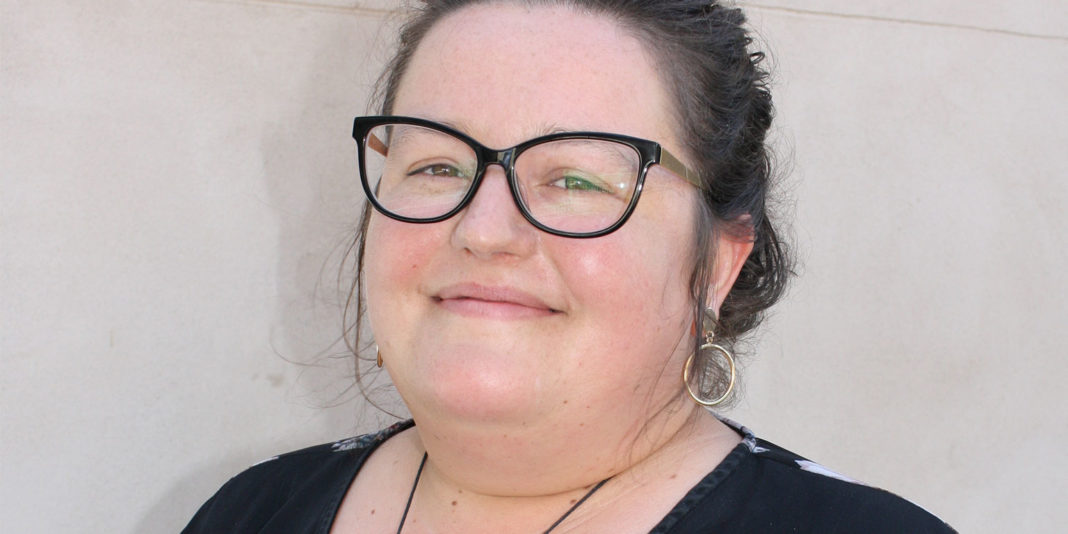If nursing students wanted their National Student Unit (NSU) chairperson to be relatable and highly capable they couldn’t have chosen a more perfect candidate than Nadine Everson.
Nadine was elected last year to chair the New Zealand Nurses Organisation’s NSU, after eight months as the student representative at the Rotorua Campus of Toi Ohomai Institute of Technology where she is in the third year of her nursing degree. The 32-year old is Pakeha, was adopted by an Indian family and raised in Rotorua. She is revelling in her final year.
“The first two years were really hard but I feel like this third year has been really grounding. I know where I want to go to from here.”
Nadine has been many places already. She worked on a deep sea fishing trawler for a time.
“It was a large scale operation with 50 plus people on the boat. It taught me a lot about how to work with people; about how team work is essential for remaining safe. It also taught me how to motivate people – because after six weeks together on a boat you’re not going to be at your best by the end.”
She also worked as a mortician’s assistant doing autopsies in a district health board setting.
“It taught me the true value of working with families, and at their lowest point. And it piqued my interest in clinical skills.”
Nadine continues to work with a girl with Down syndrome, whose family employed Nadine as a support worker to help their daughter to engage with the community.
“That taught me how to be patient-centred. It taught me how to work past barriers.”
What solidified Nadine’s decision to go nursing, was being a carer for her father when he had terminal cancer.
“When he was in hospital I saw the true value of nurses. I saw how integral to the quality of care nurses are. How they are the patient’s eyes and ears and how intuitively perceptive they have to be to help keep a patient’s spirits up and look for any changes needed in the patient’s care and for any deterioration in the patient.
“And how the nurses kept the patient engaged and gave the patient information about where they are in their journey. That knowledge helps a patient feel a little bit more balanced when they are in such a tumultuous period of their lives. And then the hospice nurses in the latter stages were just amazing and incredible…I could never pay them back but I could pay it forward by becoming a nurse.”
How has study been?
“It’s been busy. I feel that this is the year that you find your feet. I’ve just finished a placement in a GP practice and it has been a pinnacle point in my nursing. I can see myself going towards that continuity of care in a general practice.
“It was wonderful and I’ve just left there and I really feel like I am in a bit of a grief cycle. Now it’s all about getting to that level of a new registered nurse.”
What has she learnt as the student delegate?
Becoming the chairperson was a natural progression, she says. “I really believe in advocacy. I think that it is a big part of what we do for patients, for colleagues and for ourselves.”
“That change occurs through planning and preparation. Little changes can all add up to bigger changes. I was talking with a student the other day and I said all the trickles can come together to make streams that come together and make a river. I’ve also learnt that expectations need to be grounded in reality. You need to be able to work within the system and within your roles and responsibilities.”
Nadine has been working on student nurses’ health and well-being.
“Our students make a lot of sacrifices in terms of time lost with whānau and a loss of earning ability while studying. It’s been important to me to bring that student perspective to regional meetings and to get that message across regularly to the wider NZNO. “
She hails NZNO’s Nursing Strategy as a forward thinking document.
“I gave feedback on the Nursing strategy in its developmental stages – I think it’s pretty comprehensive and it’s brought me to student-focussed research around mentors – it’s about student retention. As well as mentoring, students need to be made aware of the services available to them.”
Safe staffing and pay parity
She says students don’t necessarily view the debate around the safe staffing problem as all negative.
“For us it’s not a negative, we see this conversation as a progression to better pay outcomes, and better health outcomes for patients, and better education opportunities when we are on placements.”
Nadine wants to be advocating for patients in the future. “In five years’ time I want to be in community health helping people engage with services. I want to be helping patients deciding their health journeys not just being participants.”
In relation to pay equity Nadine says she has always been aware of the lack of pay parity for nurses.
“I feel that nurses working for iwi providers getting paid less is a topic that needs a higher profile. Most students are just happy to get a pay after doing so many hours for free on their placements, but it is disheartening seeing how hard our registered nurses work, and we are so proud of them for raising their voices.”
A big issue for students is the ‘struggle of the juggle’.
“It’s helping students find a balance. There’s an irony that we are being taught to care for patients but we have to learn to care for ourselves as well. I see the pressures of the long hours on practicum combined with the academic work.
“Sometimes that missed time with whānau creates a deficit in someone’s wellness. That’s where we see the biggest gaps and where the leadership team want to move forward with research and a hauora plan where we can teach students to identify ways to keep themselves well.”
Photo credit: Kai Tiaki Nursing New Zealand





















